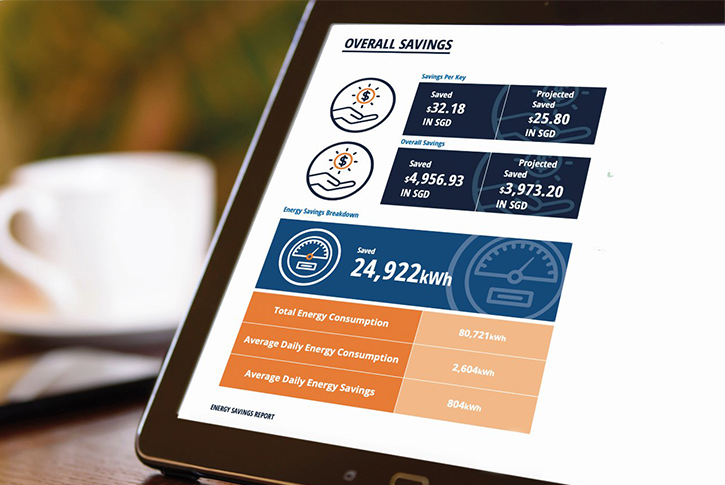The world’s most beautiful hotels are known for their stunning views, luxurious amenities and exquisite service. However, the future of these hotels and luxury resorts can’t only be measured in terms of their physical assets. Hotel owners need to consider their existing energy infrastructure as a vital link in their overall guest experience strategy. In fact, according to a report by Accenture, 75% of hotel guests surveyed said that they would consider changing brands if they found out that they had stayed at an inefficient hotel with poor energy management practices
Energy Management in Hotels Has a Long History.
The energy management industry, as it is today, has a long history. In fact, energy management in hotels has been around since the early days of electricity. But how did we get here? Let’s start at the beginning.
- The first hotel to have its own electrical plant was The Delmonico Hotel in New York City which installed an arc light system and electricity generator in 1882. The technology allowed them to provide electric lights instead of kerosene lamps within their lobby!
- In 1939, the first hotel with central air conditioning was built in New Orleans: The Royal Orleans Hotel—and they were definitely ahead of their time with this one!
But what’s next? How can we expect things to change with our modern-day energy needs?
The Reality of Managing Energy in Hospitality.
Energy management is a long-term process. It’s not something you can do in one month or even one year. It requires time and effort to analyze your data, compare it to industry benchmarks, and then develop a plan for improvement that works for your hotel.
In order for energy management efforts to be successful, they must be supported by data—lots of it. This means having access to real-time information about how much electricity your building uses at any given moment.
If you don’t have access to this data, you won’t be able to make informed decisions about how to reduce your energy consumption.
Smart Energy Management
Smart energy management is the solution to our current and future challenges. The most effective way to manage energy efficiently is through the implementation of smart meters, smart thermostats, and other devices that allow us to monitor and control both large-scale and small-scale energy systems throughout our hotels.
This will enable us to optimize building efficiency so that we can reduce our greenhouse gas emissions while maintaining a high level of comfort for all guests. We also recommend automating shutoff switches for appliances such as televisions or radios when they are not in use; this will save you money on your utility bill while reducing CO2 emissions by preventing unnecessary electricity usage. Additionally, renewable energy options such as solar panels provide an excellent opportunity to consider when redesigning your hotel’s infrastructure to make use of clean power sources instead of fossil fuels.
Hotels Are Going Green!
The movement towards sustainable, environmentally-friendly hotels is growing. Hotels are going green by using renewable energy sources, efficient appliances, and smart technology to save energy.
As a hotel owner or manager, you want to be at the forefront of this transformation. Your guests demand it—and so does your bottom line.
How to Save on Energy Costs as a Hotel Owner.
As a hotel owner, there are several ways you can save on energy costs. First and foremost, use smart meters to monitor your hotel’s electricity and natural gas consumption. Smart meters allow you to identify trends in consumption that may be wasteful or even harmful to the environment (for example, if an appliance is constantly running inefficiently).
Next, invest in energy management software that will help you analyze these trends and implement cost-saving measures such as installing solar panels or upgrading your HVAC systems.
Finally, consider using LED lighting instead of traditional incandescent bulbs; this will reduce the amount of energy needed for lighting without sacrificing quality or style.
By following these three steps—using smart meters for monitoring electricity use; installing solar panels to generate power; and switching over from incandescent lights—you’ll save money on both electricity bills and labor costs associated with maintaining large amounts of infrastructure related specifically toward lighting needs!
How Can Hotels Use Data to Get More Power From Their Assets?
We’ve all been there: You travel to a new city and stay at a hotel, only to find that your room is freezing cold or too hot. Or maybe it’s just not as nice as you thought it would be. In some situations, this can be chalked up to bad luck; in others, it might be time for hotels to start collecting more data about their guests—and how they use energy resources—in order to improve their service and attract repeat business.
The first step toward getting more power from your assets is understanding where energy is being wasted. The second step is using those insights (alongside other data) so that hotel managers can make informed decisions about which rooms need heating or cooling at what times of day—and which guests are using the most electricity during their visit.
The Future of Hotels and Energy Management Lies in Awareness.
The future of hotels and energy management lies in awareness. In order to achieve a sustainable future, we will need to be aware that:
- We need more efficient equipment and systems
- Green energy is the future
- Data collection is essential for effective energy management
We need to be aware that the world is changing. Technology is advancing, and we need to ensure that we stay up with the times. We must be aware of how important it is to have sustainability in our buildings and energy management systems.
Conclusion
This is the future of energy management in hotels, and it’s one that we can all be proud to be part of. The hospitality industry is helping to drive innovation in this regard, which means more efficient buildings and more sustainable practices going forward.

